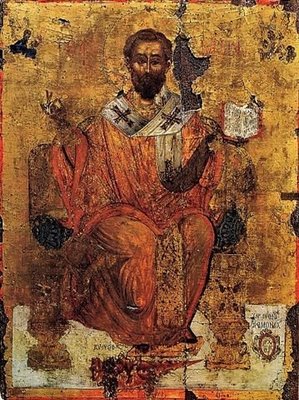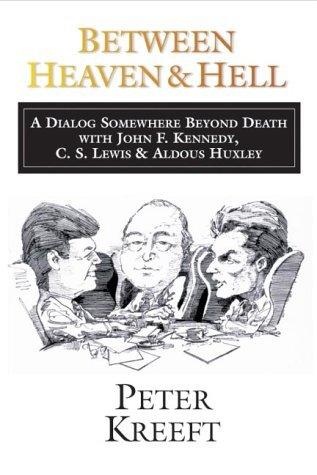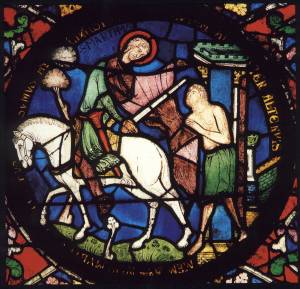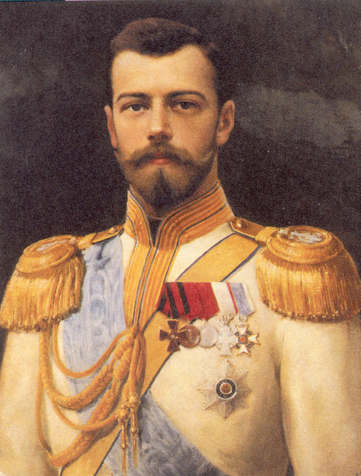
“It Is Here … That the Christian Roots of Europe Took Seed”
PAPHOS, Cyprus, JUNE 4, 2010 (Zenit.org) – Here is the address delivered today by the Cypriot Orthodox Archbishop Chrysostomos II during an ecumenical celebration at the archeological area of the Church of Agia Kiriaki Chrysopolitiss. [emphasis added]
* * *
Your Holiness, Pope Benedict of old Rome, welcome to the Island of Saints and Martyrs!
Welcome to the first Church of the Nations, founded by the Apostles Barnabas, Paul and Mark!
Welcome to the Church of the Apostles, after the establishment of which the Holy Spirit led the Apostles to separate themselves from their brethren and sent them towards the Nations!
“So, being sent out by the Holy Spirit, they went down to Seleucia, and from there they sailed to Cyprus. When they arrived at Salamis, they preached the word of God in the synagogues of the Jews … they had gone through the island to Paphos” (Acts 13:4-6).
In this very spot, your Holiness, stood the synagogue of the Jews and from this place St Barnabas and St Paul preached the word of God to the Jews.
“But the word of God is not chained” (2 Timothy 2:9). It could not have been possible for the Spirit of Love of the Incarnate, Crucified and Resurrected Lord to remain restricted among the Jews. Jesus Christ came to the world “that whoever believes in Him should not perish but have everlasting life” (John 3:15).
The commandment of the Holy Ghost was for them to preach to the Nations. Thus, when the Roman deputy, Sergius Paulus, “a prudent man” according to St. Luke, invited the Apostles “to hear the word of God” (Acts 13:7) they gladly went forth to the place where the political administration of the island was based in order to preach the word of the Lord for the first time among the Gentiles also.
At this point, “Barnabas and Paul exchanged their roles. Here was a place not for the Cypriot, but the Roman citizen”.
As of that moment Paul became the leader of the mission. He also changed his name. From this moment on he was no longer called Saul in the New Testament, but Paul!
It was in this town that the first miracle of the Apostles was performed, as recorded in the New Testament. It was here that the first European citizen was baptized in the name of the Holy Trinity. It was here that the first official citadel of idolatry fell and in its place the glory of the Cross was raised in all its splendor, and would gradually spread to cover the whole of Europe and shape its historical future.
It is here, your Holiness, that the Christian roots of Europe took seed and from here its spiritual shoots first burst forth. The foundations of the edifice of Christian civilization in Europe were laid on this very spot where we now stand, deeply moved by the sense of history. It is for this reason that Cyprus is justly called “the Gate of Christianity in Europe”.
Here in Paphos, after the wondrous events that took place, Paul became established as the Apostle to the Nations, and went on to sow the seeds of the bread of life in your own cathedra and throughout the whole of Europe.
Your Holiness,
Since 45 AD when the Apostles first set their foot upon this island until the present day, the Church of Cyprus has had a long and fruitful Christian course. Throughout its long progress it has endured numerous troubles and difficulties, lived through dark nights, experienced many conquests, gone ‘through fire and water’, but guided always by the Holy Spirit, not only did it survive, but it continues to give its Orthodox Christian Testimony, and to fulfill its God-given mission.
But, alas, since 1974, Cyprus and its Church have been experiencing the most difficult times in their history.
Turkey, which attacked us barbarously and, with the power of its arms, occupied 37% of our territory, is proceeding — with the tolerance of the so-called ‘civilized’ world — to implement its unholy plans, first to annex our occupied territories and then the whole of Cyprus.
In the case of our island, as it has done elsewhere, Turkey has implemented a plan of ethnic cleansing. It drove out the Orthodox Christians from their ancestral homes and brought — and continues to bring — hundreds of thousands of settlers from Anatolia, thus altering the demographic character of Cyprus. In addition, it has changed all the historical place names into Turkish ones.
Our cultural heritage has been plundered relentlessly and our Christian monuments are being destroyed or sold on the markets of illicit dealers in antiquities, in an attempt to rid the island of every last trace of all that is Greek or Christian.
We hope that in this terrible ordeal, which has caused so much agony to the Christian congregation of our Church since 1974, the Good and All-Merciful Lord will not turn His face from our suffering people, but will grant us Peace, Freedom, and Justice, thus granting to us the all-fulfilling love given by His presence in our hearts.
In this struggle of ours, Your Holiness, which the Cypriot people are waging with the guidance of their Leaders, we would greatly appreciate your active support. We look forward to your help in order to ensure protection and respect for our sacred monuments and our cultural heritage, in order that the diachronic values of our Christian spirit might prevail. These values are currently being brutally violated by Turkey — a country desirous of joining the European Union.
Your Holiness,
In this joyful moment of your presence among us together with your retinue, we, the President of the Republic, the Government, the Holy Synod, the pious congregation of our Church, and I personally, would like once again to address to you a heartfelt welcome and wish you a pleasant stay.
+Chrysostomos Archbishop of Cyprus
Holy Archbishopric of Cyprus


















